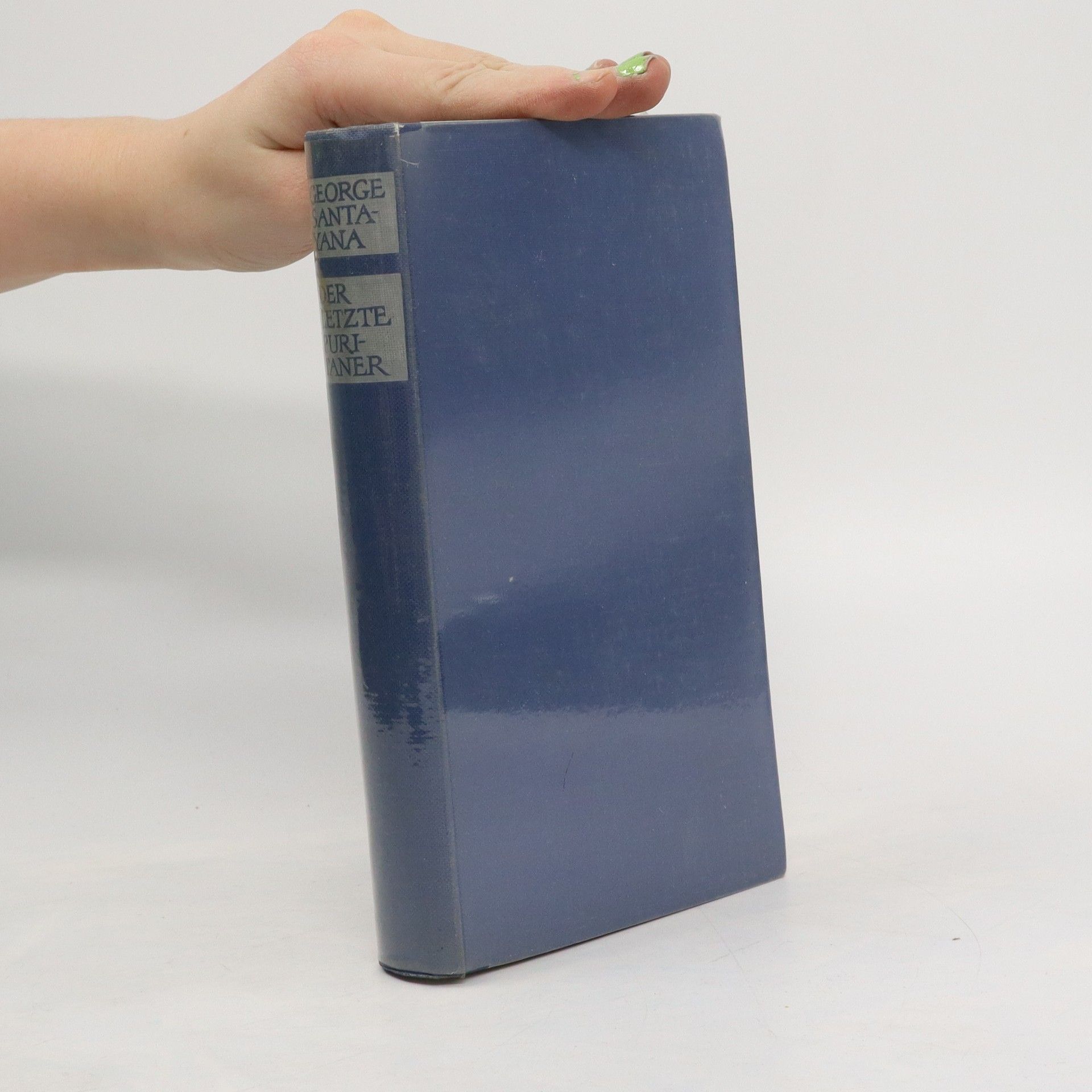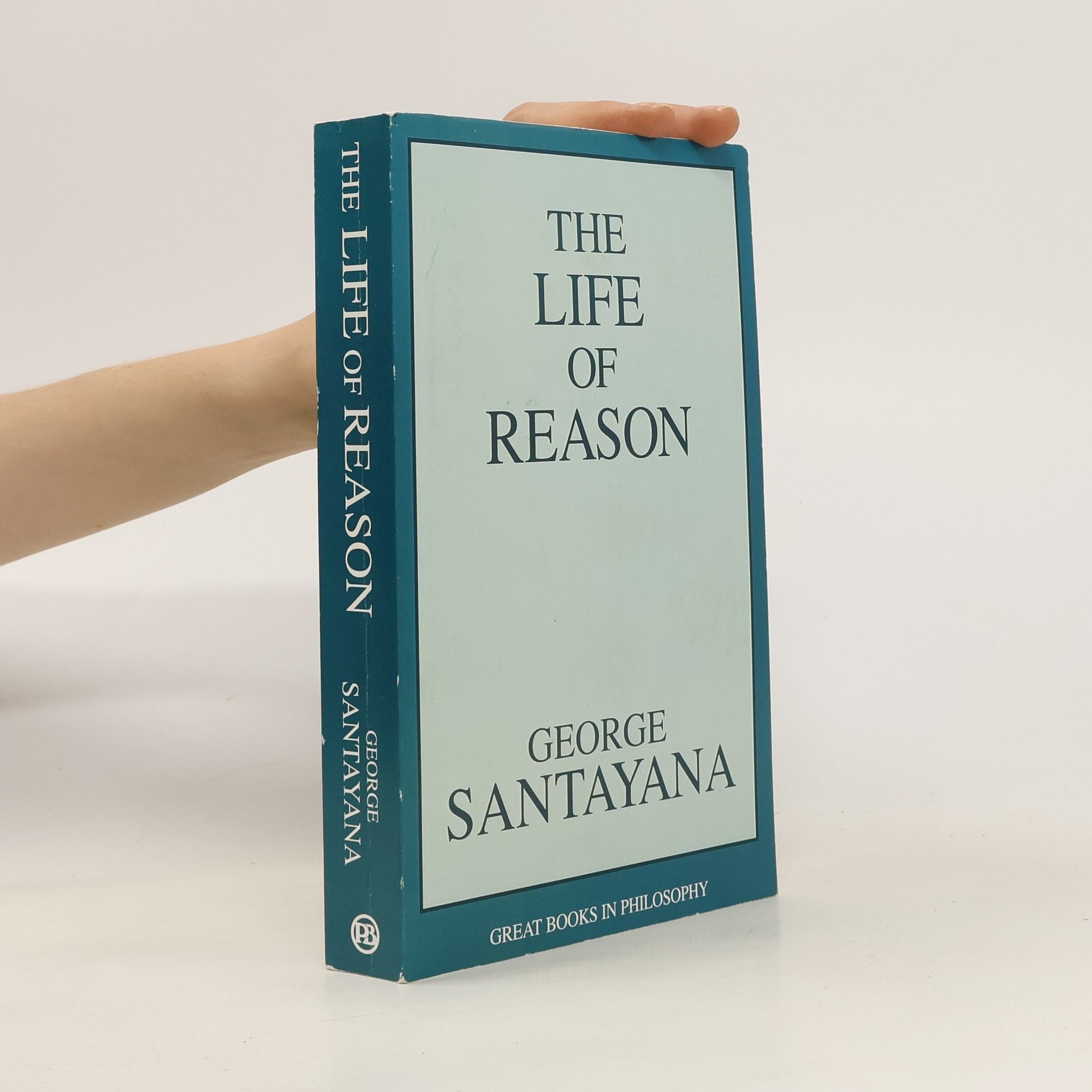Influential philosopher, poet, and literary critic George Santayana (1863-1952) was a thorough naturalist, concerned with the ideal factors in human experience. He held that everything possesses a natural basis and that everything natural has an ideal development. In this one-volume edition of his early work, The Life of Reason (originally published 1905-6), Santayana argues that rational life is embodied in various ideal forms, including religion, and that religion may be embodied in reason. However, this is not to say that religion is grounded in science; rather, religion is poetic, a rendering of natural events in a dramatic form. Hence, to take so-called religious truths as literal claims is preposterous
Santayana George Libros
George Santayana fue un filósofo, poeta y crítico literario cuya obra anticipó giros intelectuales clave en ambos lados del Atlántico. Su naturalismo y énfasis en la imaginación creativa influyeron fundamentalmente en el pensamiento moderno. Santayana exploró múltiples perfecciones antes de que el multiculturalismo se convirtiera en un problema, y entendió la filosofía como literatura antes de que se convirtiera en un tema en círculos académicos. Logró naturalizar el platonismo, actualizar a Aristóteles y ofrecer una descripción sensible de la vida espiritual sin creencias religiosas. Su herencia hispana y su sentido de ser un extraño en América le permitieron capturar cualidades de la vida estadounidense pasadas por alto por los iniciados.





The great philosopher, essayist, poet, and novelist masterfully offers his fascinating outline of Aesthetics Theory. Drawing on the art, literature, and social sciences involved, Santayana discusses the nature of beauty, form, and expression.
Published in 1935, George Santayana's The Last Puritan was the American philosopher's only novel and it became an instant best- seller, immediately linked in its painful voyage of self-discovery to The Education of Henry Adams. It is essentially a novel of ideas expressed in the birth, life, and early death of Oliver Alden. In Oliver's case the puritanical self-destruction that prevented him from realizing his own spirituality is transcended by his attainment of the type of self-knowledge that Santayana recommends throughout his moral philosophy.The Last Puritan is volume four in a new critical edition of George Santayana's wroks that restores Santayana's original text and provides important new scholarly information. Books in this series - the first complete publication of Santayana's works - include an editorial apparatus with notes to the text (identifying persons, places, and ideas), textual commentary (including a description of the composition and publication history, along with a discussion of editorial methods and decisions), lists of variants and emendations, and line-end hyphenations.
Przekład, wstęp i opracowanie – Adam Grzeliński i Krzysztof Wawrzonkowski Niniejsza rozprawa George’a Santayany (1863–1952), należącego do najważniejszych amerykańskich filozofów XX wieku, stanowi trzecią część cyklu The Life of Reason (1905–1906), jednego z dwóch, obok późniejszych Realms of Being (1927–1940), monumentalnych dzieł myśliciela. W kolejnych tomach składających się na Życie Rozumu Santayana śledzi stopniowe wyłanianie się refleksyjności, a przez to wzrastanie rozumności i obiektywizację przedmiotów ludzkich dążeń – ideałów w ustanawianiu świata codziennego doświadczenia, w racjonalnie funkcjonującej i opartej na zasadach prawa społeczności, w sztuce w symboliczny sposób ukazującej istotne kwestie ludzkiego życia, w postępie nauk, a wreszcie w religii. Zawarty w tomie opis religii ma dwojaki charakter. Po pierwsze Santayana spisuje w nim swoistą historię systemów religijnych, wyłanianie się politeizmu i jego przekształcenie w największe religie monoteistyczne. Pisze o judaizmie, religiach Indii, buddyzmie i islamie, choć najwięcej miejsca poświęca chrześcijaństwu i jego rozwojowi. Z drugiej, bardziej systematycznej strony analizuje religię jako samoistną i niesprowadzalną do innych, ludzką formację duchową oraz jej najważniejsze składowe. Są to: myślenie mityczne, pobożność, duchowość, miłosierdzie i wiara w życie przyszłe.